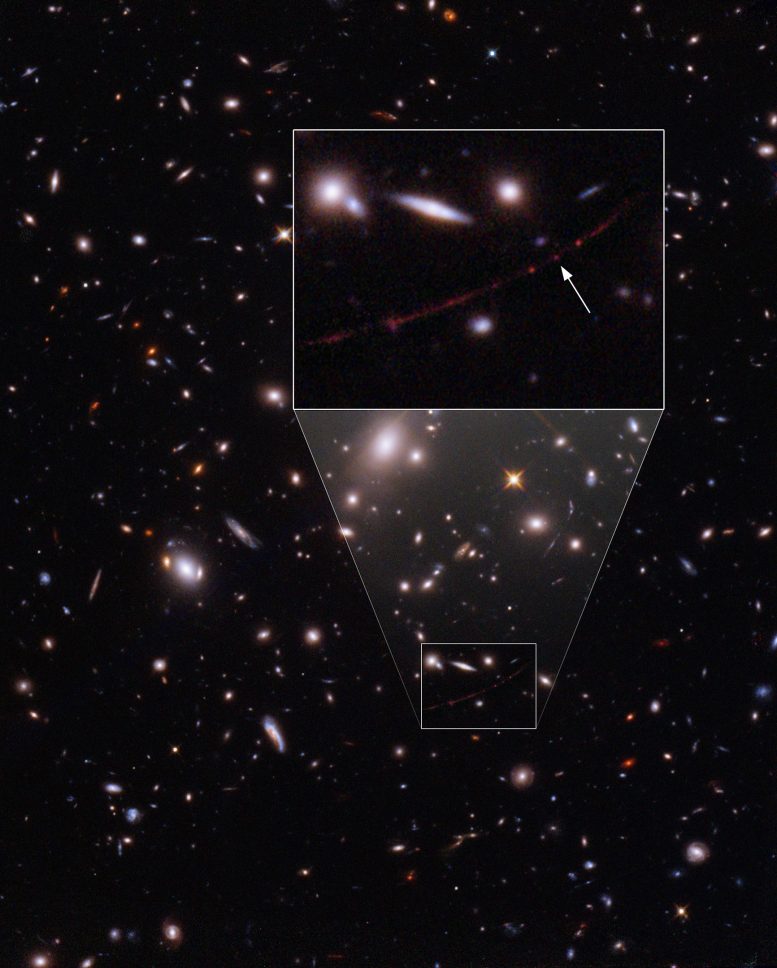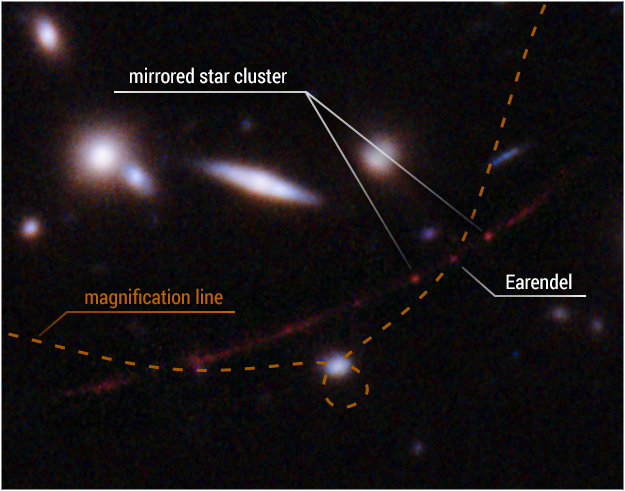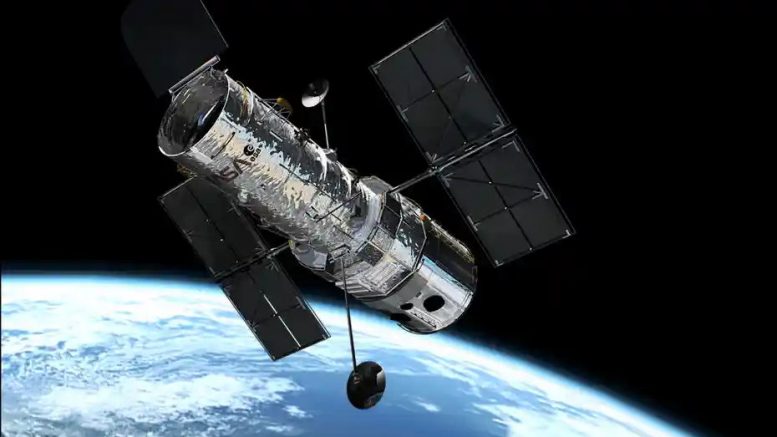by Yanbin Tan
In late March, astronomers observed the most distant star ever seen by using Hubble Space Telescope, according to a paper published in The journal Nature.

Astronomers have discovered the most distant star that have ever seen, based on previous data from the Hubble Space Telescope. The star’s redshift is much larger than many quasars, at 6.2. That means the star is very far away. Based on the time it takes for light to travel, it suggests that this image of the star we’re looking at is quite old. Its previous position was about 28 billion light years from here. Its light also took 12.9 billion years to reach Earth. That means the stars we observe are long gone. It was actually born 900 million years after the Big Bang. For a star in the universe that was born at that time, we call it Earendel. Under normal circumstances, however, we can’t see stars at such a distance. Because at such distances, even a galaxy of trillions of stars looks like little more than a point of light.

So how did scientists find this star that was almost impossible to find? In fact, it was a coincidence. The star was discovered mainly because of the gravitational lensing. So, what is gravitational lensing? We can quote wikipedia: A gravitational lens is a distribution of matter (such as a cluster of galaxies) between a distant light source and an observer that is capable of bending the light from the source as the light travels toward the observer. In simple terms, gravitational lensing acts like a giant magnifying glass, magnifying the scene behind it many times. Matter in space is the mirror of a magnifying glass. This time, the mirror is a giant cluster of galaxies. As the light is bent, the enlarged image will also be distorted. What had been a spot of light became a ring under the influence of gravitational lensing. That’s how we were able to observe this ancient star.

Based on its age, scientists say it is one of the earliest stars to have been born in the universe. Maybe even the first stars. So it was made of very different elements than today’s stars. The star lacks metals. The older the stars, the more elemental they tend to be. These stars are called ‘metal-poor’ or ‘metal-free’ stars. The latter, in particular, has hitherto existed only in theory, not directly observed. So this is a very significant discovery
Reference:
Welch, B., Coe, D., Diego, J.M., Zitrin, A., Zackrisson, E., Dimauro, P., Jiménez-Teja, Y., Kelly, P., Mahler, G., Oguri, M. and Timmes, F.X., 2022. A highly magnified star at redshift 6.2. Nature, 603(7903), pp.815-818.


Be the first to comment on "Astronomers have discovered the most distant star ever found"